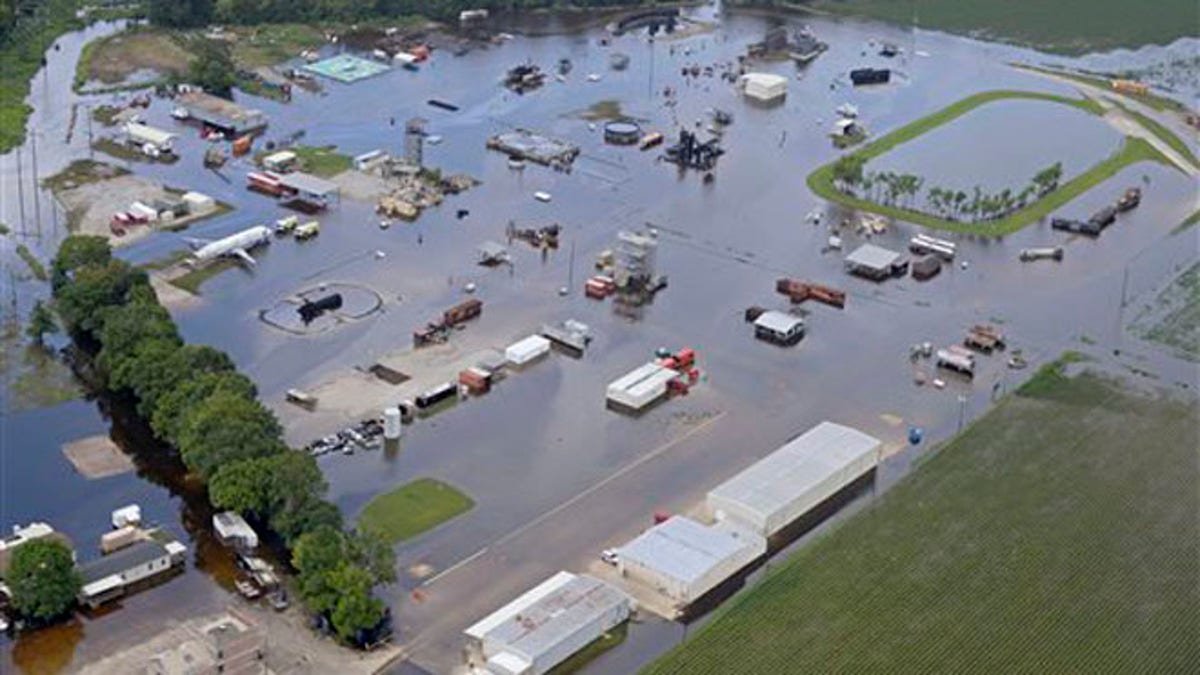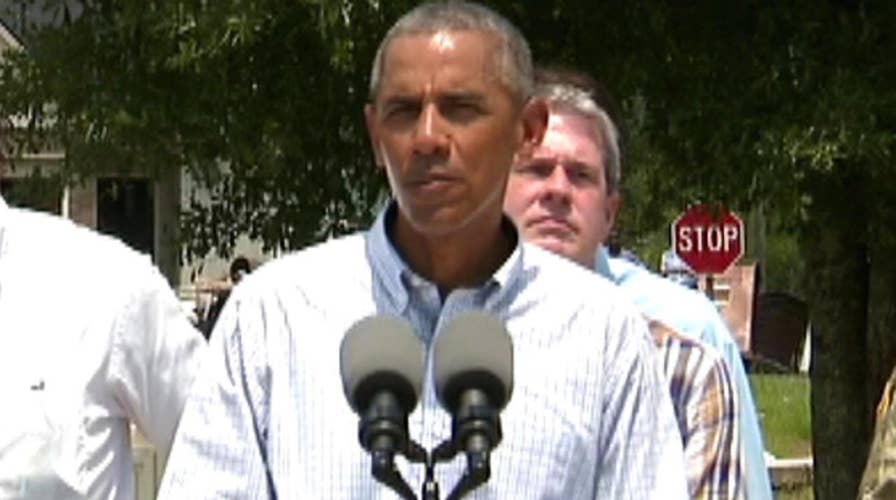Obama to Louisiana flood victims: 'You're not alone'
President says support and help will continue until 'lives are rebuilt'
Mobile homes will fill front yards across southern Louisiana again, just like after Hurricane Katrina, as federal authorities bring in temporary housing for thousands of people displaced by catastrophic flooding.
These houses, though, will be on blocks and strapped down -- not on wheels like the travel trailers of a decade ago.
As he announced the disaster housing plans Wednesday, Gov. John Bel Edwards described a "shelter at home" program as the more desirable option. Homeowners will be able to receive grants of up to $15,000 aimed at making houses habitable quickly so people can live inside while doing more extensive repairs.
"That's where our people want to be. They want their kids back going to their schools. They want to live in their neighborhoods, their communities. And they want to attend their church," the Democratic governor said.
Registration for the program begins Monday, but the grants can only help homeowners with less catastrophic damage. Those with more severe destruction will have access to mobile homes not unlike the trailers used for Katrina victims.

Floodwater covers the site of the LSU Fire and Emergency Training Institute after heavy rains in Baton Rouge on August 16. (Bill Feig/The Advocate via AP)
Edwards underscored that "this is not the preferred option," but he drew a contrast to the old Federal Emergency Management Agency travel trailers used a decade ago. He said the mobile homes meet higher regulatory standards, are already owned by FEMA and are manufactured by one company rather than the myriad vendors that built the travel trailers.
"These are not the same as FEMA trailers that have been used in the past," Edwards said. He added: "Hopefully, they will hold up better and offer a safer place for people to live."
The much-maligned travel trailer that dotted front yards and miles of vacant property in south Louisiana and Mississippi became a symbol of everything that had gone wrong with the federal disaster response to the destructive 2005 hurricane. Families were crammed into tiny trailers that drew health worries after toxic levels of formaldehyde were found.
It wasn't immediately clear when the first mobile homes would be set up or how many people would need them, but the governor said he met a man with a flood-damaged home in East Baton Rouge Parish who said his property already had been measured and inspected by FEMA to determine if it would be suitable for one of the units.
"It's going to ramp up over the next several days," said Gerard Stolar, FEMA's regional director.
The manufactured housing units will be available for people who don't live in a designated flood plain to set up in their yards as they repair houses. For those in a flood zone, the mobile homes will have to be set up at trailer parks or other commercial property still being identified.
Described as the worst disaster since Superstorm Sandy in 2012, a storm that started Aug. 12 dumped as much as 2 feet of rain over two days in some areas and was blamed for 13 deaths. Edwards estimated the flooding damaged more than 100,000 homes. About 2,600 people remained in shelters, and more than 119,000 households have registered for federal aid.
Thousands of south Louisiana residents remain stuck in shelters, living in hotels or staying in the spare bedrooms of family and friends after the flooding.
Entire neighborhoods were inundated with water, making homes uninhabitable, filled with mildewed carpets and warped cabinets. People have spent days gutting houses, stripping out furniture, walls and flooring. But some houses could take days or weeks to dry out -- and repairs could take even longer.
Denham Springs Mayor Gerard Landry said he would appreciate the FEMA mobile homes in his city, where he estimates 90 percent of the homes were damaged in the flooding. Landry said it will be crucial to get these mobile homes in place before schools begin to reopen.
"If we can put a family in some sort of a housing facility in their yard, at least it would give the children some sense of normalcy," he said. "I'm looking for every option where we can keep everybody here, keep our community together as much as we possibly can."










































